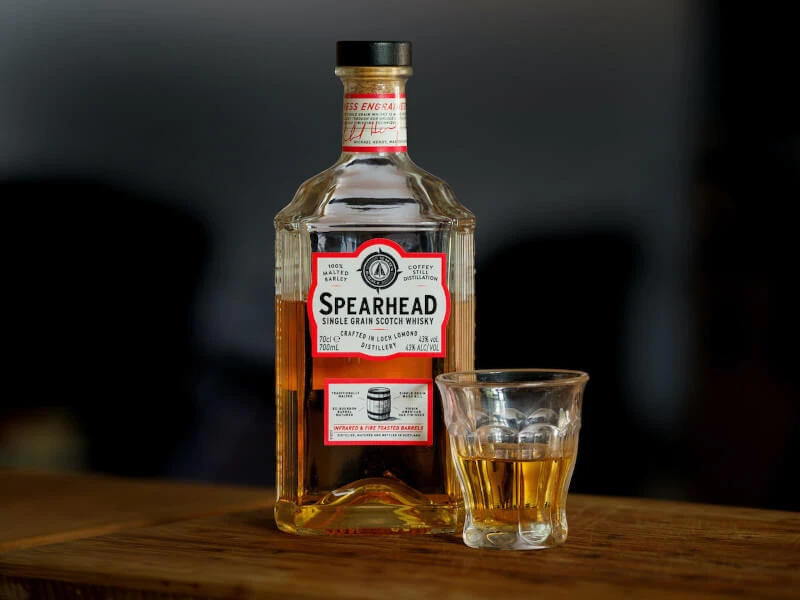In the realm of spirits, Scotland has long been the poster child for single malt whisky. Its deep traditions, age-old distilleries, and smoky, peated flavors have won hearts globally. However, just a stone’s throw away, a new contender is gaining momentum: Welsh single malt whisky. Dubbed by some enthusiasts as the “next scotch”, this variant from Wales is turning heads and tantalizing taste buds around the world.
A Historical Perspective On Welsh Whisky
Whisky production in Wales can trace its roots back to the Middle Ages. However, the industry faced turbulence with changing regulations, economic downturns, and even periods of complete dormancy. It wasn’t until the latter part of the 20th century that Wales saw a whisky revival, thanks to dedicated entrepreneurs and visionaries determined to put Welsh whisky back on the global map.
“We’re not trying to replicate Scotch or Irish whisky. We’re paying homage to our history and bringing the unique terroir of Wales into every bottle,” comments Rhys Llywelyn, a distiller from one of Wales’ pioneering distilleries.
Distinctive Features of Welsh Single Malt
So, what sets Welsh whisky apart from its well-established counterparts? Several factors come into play:
- Terroir: The lush Welsh countryside, with its unique climate and pure water sources, contributes distinct notes to the whisky.
- Barley Varieties: Distilleries in Wales have been experimenting with different barley types, some indigenous to the region, adding a unique layer to the flavor profile.
- Maturation Process: The temperate Welsh climate results in a slower maturation process, often leading to a smoother, more refined taste.
Flavor Test Between Welsh And Single Malt Scotch

| Aspect | Welsh Single Malt Whisky | Single Malt Scotch |
|---|---|---|
| Nose | Often, the first whiff of a Welsh whisky gives notes of fresh orchard fruits, hinting at apples and pears. Depending on the distillery, you might also pick up a touch of sea salt, evoking the rugged Welsh coastline. | Scotch, depending on its region, can be incredibly diverse on the nose. From the peaty and smoky aromas of Islay malts to the heather and floral notes of Highland scotches, the range is vast. Coastal scotches might give off a hint of brine, while those from Speyside can be fruitier. |
| Palate | When it comes to taste, Welsh whisky frequently presents with a sweetness akin to honey or vanilla. The influence of the region’s barley can introduce nuances of toasted nuts or even a slight herbal undertone. The pure water sources of Wales, coupled with its unique barley types, offer a refreshing and crisp mouthfeel. | The taste of Scotch can vary dramatically based on its origin. Islay malts often present with a smoky, iodine taste, while Highland malts can be more full-bodied with flavors ranging from dried fruit to toasted oak. Speyside scotches tend to be sweeter, with notes of toffee or chocolate. |
| Finish | The finish in many Welsh whiskies is elegant and prolonged. Some exhibit a slightly spicy kick, reminiscent of white pepper, while others lean towards a caramel smoothness. | Scotch finishes can be warming and lengthy, especially those with a higher peat content. The finish can range from the spicy kick of cinnamon to the mellow aftertaste of butterscotch. |
Welsh Whisky’s Reception in the Market
In the dynamic world of spirits, consumer response can make or break a new entrant. For Welsh whisky, the feedback has been overwhelmingly on the positive side, hinting at its potential to become a staple in many a connoisseur’s collection. “When I first heard of Welsh whisky, I was skeptical. But one taste changed my perception. It’s a fine spirit that holds its own,” remarks whisky critic Leonard Hayes.
Accolades and Industry Recognition
It’s one thing for a whisky to be introduced, and entirely another for it to be recognized. Welsh whisky, in its relatively short contemporary history, has already garnered significant awards in international spirit competitions. The following accolades serve as a validation of the quality and uniqueness of the spirit, providing it with credibility in a crowded market:
- Penderyn Madeira Finish:
- Gold Medal at the 2012 International Whisky Competition.
- “Best in Class” at the International Wine & Spirit Competition.
- Penderyn Peated:
- Gold Medal at the 2017 San Francisco World Spirits Competition.
- Penderyn Portwood:
- Master award at the 2013 Global Whisky Masters competition.
- Penderyn Sherrywood:
- Gold Medal at the 2013 Spirits Business World Whisky Masters.
- Penderyn Rich Oak:
- Gold Medal at the 2016 World Whisky Masters.
- Penderyn Celt:
- Silver Medal at the 2016 World Whisky Awards.
- Penderyn Legend:
- Gold Medal at the 2015 World Whisky Awards.
- Aber Falls Welsh Single Malt:
- Gold Medal at the San Francisco World Spirits Competition 2020.
- Da Mhile Organic Single Grain Whisky:
- Recognized as Europe’s first organic whisky in 2016.
- Penderyn Myth:
- Silver Medal at the 2016 International Spirits Challenge.
Consumer Response: Curiosity Turned Appreciation
Initial consumer response leaned heavily on curiosity. The very idea of a Welsh single malt was novel for many, leading to intrigue. Tasting events, promotions, and reviews have shown that this curiosity often transitioned into a genuine appreciation for the product. Whisky enthusiasts and casual drinkers alike have praised its distinct flavor profile, often noting its smoothness and unique taste derived from the Welsh terroir.
Sales and Distribution Indicators
Numbers don’t lie. The increasing demand for Welsh whisky has led to a surge in distribution deals, both nationally and internationally. Retailers report consistent sales, with some even noting repeat purchases, a strong indicator of consumer satisfaction.
The Skeptics and Traditionalists
No product introduction is without its naysayers. A segment of the market, deeply rooted in traditional whisky regions like Scotland and Ireland, initially resisted the idea of a Welsh variant. Some felt it might dilute the sanctity of single malts. However, as more and more consumers and industry experts vouched for its quality, this skepticism has begun to wane.
In-Depth Reviews and Feedback
Digital platforms have played a pivotal role in shaping the narrative. Online reviews, blog posts, and social media feedback reflect a largely positive consensus. While some reviewers pointed out its difference from the peaty Scottish malts they were accustomed to, most recognized and celebrated Welsh whisky’s uniqueness.
Challenges To Come
While the rise of Welsh whisky is promising, it’s not without challenges:
- Market Domination by Giants: Breaking into a market dominated by Scotch and Irish whiskies requires innovative strategies.
- Supply Chain Hurdles: Ensuring consistent quality while scaling production remains a concern.
- Regulatory Landscape: Navigating the intricate web of international spirits regulations can be daunting.
Top Single Malt Welsh Whisky Brands On The Market

Yes, there are already brands on the market that you look up to enjoy a single malt Welsh whiskey! For readers keen on tasting the distinct character of Welsh whisky for themselves, these brands have risen to prominence in recent years:
- Penderyn Distillery: Situated in the Brecon Beacons, Penderyn has become the poster child for Welsh whisky. Their expressions often showcase the freshness of Welsh spring water, combined with a unique Madeira cask finish that lends a fruity sweetness.
- Dà Mhìle Distillery: Nestled in Ceredigion, Dà Mhìle is known for its organic whiskies. They started with an organic grain whisky in 2012, followed by the introduction of a single malt in 2016. Their whiskies have a distinctive character, often showing a blend of fruitiness with a hint of maritime influence.
- Aber Falls Distillery: Located in North Wales, Aber Falls is known for its use of local Welsh ingredients, with a focus on reflecting the rich land from which it hails. Their expressions often carry a hint of saltiness, reminiscent of the nearby sea.
The Future is Bright and Welsh
With the increasing number of distilleries opening in Wales and the growing global interest, the future of Welsh whisky looks promising. There’s a concerted effort among Welsh distillers to maintain authenticity while innovating, ensuring that the unique character of Welsh whisky is preserved.
Peter Griffiths, a historian and author on Welsh drinks, points out, “The world of whisky is vast, and there’s room for everyone. The resurgence of Welsh whisky isn’t a trend, it shows resilience, innovation, and the richness of Welsh culture.”

